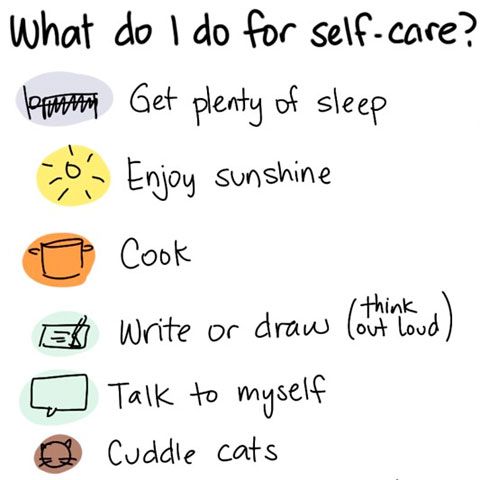
Life provides us with many challenging moments. As I write this we are in the middle of a global pandemic. If that wasn’t a challenge enough, simultaneously, some of us are also coping with a newly diagnosed medical condition, others placement into hospice care, a dementia care residence, or moving into a new home. During a natural disaster, personal loss, death, or disease, our lives can feel out of control creating an increased risk for anxiety and depression.
During stressful times, taking a conscious inventory of our day to day self-care choices is so very important for our emotional and physical well-being. Becoming aware of how we care for ourselves during these challenging times and taking active steps to do so reduces our risk of psychological and physical distress. When our normal coping mechanisms are closed or limited it’s important to explore positive alternatives.
Positive self-care includes a focus on a healthy diet, adequate sleep, time outdoors, and exercise. Another important component of self-care is the maintenance of frequent connections to family and friends to reduce our risk of isolation and loneliness. Reduced social connection can exacerbate our stress and impact on our physical and mental health. While this is challenging during the pandemic, we must develop creative outlets for our preferred self-care. If connection is important, can you set up a daily FaceTime with your grandson to read him a story? If time outdoors is important, is there a playing field at a nearby elementary school you can walk laps around? Can you join an online workout class with friend? Knowing what you need for self-care is the first step, finding a proximate activity to satisfy it is the second.
Conversely, it’s also important to become aware of behaviors that might offer an effective short-term solution with the potential risk to create long term negative effects. Short term solutions include excessive use of alcohol, food, shopping, or sedatives to reduce stress which may lead to negative untended consequence.
Increasing our self-care also includes noticing our thought patterns. It’s natural to feel anxiety, sadness, worry, anger, any mix of emotions during stressful times. Become conscious of thoughts and feelings. It is natural to feel drained and discouraged at times during challenges. Notice thoughts, are we falling into an endless thought pattern of worry? Worrying and imaging the worst-case scenario can be helpful for planning, but an endless loop of running the worse scenarios in our minds can impact our immune system. Worry keeps us in a heightened state of anxiety, taxing our energy reserves, leading to mental and physical exhaustion.
Let’s learn to be easy with ourselves. Self-compassion goes a long way to relieve our negative thinking. Have self-compassion for what we are going through, notice our thoughts: are they kind, or judgmental? Notice how we feel, not the story we tell ourselves as how we should feel. Our feelings can change day to day, minute to minute, hour to hour. Notice and accept all feelings.
As caregivers we provide the best of care to others, let’s strive to provide that same care to ourselves. In keeping with the wisdom of Victor Frankel, a holocaust survivor and writer, “Between the stimulus and the response there is a space. And in that space is our power and our freedom.” In that space, let’s empower ourselves to make positive self-care choices during these challenging life events.
Author
Rebecca C. Harrison, LCSW, CDP is a Licensed Clinical Social Worker specializing in individual, couples, and family therapy. Rebecca maintains a private practice in McLean, Virginia.




